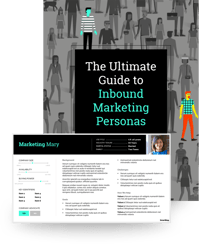
How to Get the Most Out of Your Inbound or Design Agency
April 26, 2016
By Ryan Malone
One of the great things about working as an agency professional is having an opportunity to be involved with some really cool people and companies, doing some really cool things on their behalf. Having a positive relationship with a client provides drive and desire to give them the best. In fact, I’ve found it really is true in any relationship, whether personal or professional, that what you put in drives what you get out.
Do you feel like you aren’t getting what you want out of your relationship with your inbound or design agency? Here are 10 ways that you can be the kind of client who inspires loyalty and gets the most out of an agency relationship.
1. Communicate Early and Often
Miscommunication can be a killer in any relationship, and the agency-client relationship is no exception. A good agency is always going to do its best to prevent communication problems by asking questions, getting clarification, and taking the initiative to ensure that you’ve been understood. You can help by communicating clearly, early, and often. It may feel like you’re giving them more information than they can possibly use, but don’t worry: you’re not. The better your agency knows you, your ideas, and your business, the better they will be able to represent and reflect you with their work.
Do you have ideas? Don’t be shy about sharing them. Got questions? Your agency should be not only able but eager to educate you. Not only can free and open communication reduce the risk of errors and misunderstandings, it can help build serious trust between you and your agency partners.
2. Commit to Responsive Feedback
It’s painfully easy for a project or idea to get bogged down by layer after layer of internal reviews and revisions. In order to help speed deliverables through and get your projects up and moving as quickly as possible, commit yourself and your team to rapid response and feedback.
Dropping what you’re doing to provide approvals and revision requests can be inconvenient in the moment, but the speed it adds to your overall agency process is typically worth it, and your agency partners will appreciate knowing that you’re always there to help them help you.
3. Find Someone You Can Talk To
Get to know your agency team early and well. It’s important to know that there is someone at your agency that you trust and feel comfortable talking to. If the person assigned to be your primary point of contact isn’t someone you are able to connect with, consider asking for someone else. Depending on the agency’s size and structure, it isn’t always possible to change, but making sure you’re dealing with someone you can talk to frankly and truthfully can make the difference between a successful relationship and a failed one.
It’s best to make a request like this after investing some genuine time and effort in trying to make things work. If you haven’t given your agency team a chance, you risk shooting yourself in the foot by walking away from someone who is likely to have been selected for you based on expertise, experience, and even personality.
4. Let Your Experts be Experts
Letting go is hard sometimes. Maybe you’ve gone as far as retaining an agency for some outside design or marketing work, but are you taking their advice? Relying on your paid experts to, well, be experts is something that many executives can struggle with, especially at small-to-medium businesses where they are used to calling every shot.
If you’re hiring an expert but aren’t ready to give them some freedom, you’re putting yourself at risk of wasting both your time and money. There are almost always some non-negotiables, like brand guidelines or pre-set goals and budgets, but as a general rule of thumb you’ll get more if you restrict less and let your agency’s experience and expertise be a guide.
5. Don’t Take it Personally
Is a designer telling you that some colors need to change? Is an editor pointing out grammar flaws on a website you love? Did your idea for a campaign get gently shot down or revised? Your agency professionals aren’t doing this to hurt you: they’re doing it because they don’t want to waste your time and money on things that aren’t the best.
An inbound marketing agency is a machine built to produce great inbound marketing. Did you hire them because they're doing it better than you? Don't feel bad about that. It's their job to be the best.
6. Don’t Underestimate Timelines
It’s easy to underestimate the time it will take to get something done while still leaving a comfortable margin for revisions and feedback. If you wait until the last minute to request a campaign, project, report, or other deliverable, you are more likely to run into delays, mistakes, or other frustrations. Leave a buffer between your agency’s deadline and your internal deadline and do your best to get a realistic idea of how long a task will take.
7. Back Your Goals With Data
Whether it’s a deadline for a deliverable or a sales number that you want to achieve, don’t set a goal without good data. Without careful benchmarking based on past performance, current capacity, budget, and market, you could be trying to hold yourself and your agency to an unattainable ideal.
All goals that you set with your agency should be SMART: specific, measureable, attainable, realistic, and time-based. Failure to set your goals based on the actual reality of your situation can lead to a host of problems, not least a feeling that your agency is failing you.
8. Save Red Alerts for Real Emergencies
It’s easy to feel that the only way you’re going to get the kind of attention you want and need is by making everything urgent. After all, isn’t it the squeaky wheel that gets the grease?
But if you’ve chosen a good agency, this shouldn’t be the case. Agencies exist to help their clients, and at least one person at your agency is likely tasked with making sure you are happy, considered, and taken care of. Exaggerating problems in order to get your requests dealt with quickly can seem like a great strategy--until it starts to cause burnout and fatigue in the very people whose job it is to push to get you what you need.
9. Set Realistic Expectations
Anybody who promises you that something will “definitely go viral” or “have guaranteed results” is likely not being completely honest. While we have a huge list of best practices and data-driven principles we follow, marketing and design are not hard sciences and success is not a guarantee.
A great agency will be honest with you about both successes and failures, their rationale for decisions and recommendations, and the time that it can take to see results. If your sales cycle is months long, don’t forget that it will take at least the length of a full sales cycle to really see the results of your inbound plan.
10. Explain Your Thinking
Your requests and goals are perfectly reasonable to you. However, to someone who isn’t on the ground, up to the elbows in the day to day culture and life of your company things may not always be as clear. Don’t just stop with the “what” when you’re communicating with your agency. Make a point of sharing the “why.”
Past experiences and research, future goals, and personal preferences all contribute to ideas and decisions that you will make. Sharing those with your agency can help them understand you and do a better job of giving you exactly what you need.
At the End of the Day, It’s About Trust
You’ve probably noticed the theme running through this article. A successful relationship with a marketing or design agency requires mutual trust and respect. Your agency needs to trust you to communicate needs, voice concerns, and listen to advice. You need to trust your agency to have your back, work as a reliable partner, and value your business success like it’s their own.
If you’ve signed with an agency, they should have already earned your preliminary trust and respect during your discovery and decision process. You can earn not only trust and respect but long-term loyalty and success by giving your agency partnership the room to grow and succeed, even if it means sometimes taking a risk or two.
What do you love about your marketing or design agency? Join the conversation and let us know!

About the author
Ryan Malone is the founder and Chairman of the Board of SmartBug Media and is a veteran of Deloitte & Touche, Seagate and several venture-backed technology companies. When he's not leading SmartBug and helping clients build high-octane marketing organizations, he's loving his wife and daughters and unsuccessfully learning the guitar. Go Terps! Read more articles by Ryan Malone.







